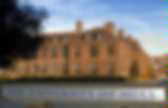

Will Self: The Book I Should Have Read - Jewish Quarterly. It’s strange knowing more about a writer than you do about what he has written – stranger still to know more about at least a couple of the books he has published than a cursory reading of them might afford.

This second statement needs to be qualified: in asserting that it’s possible to know more of book by reading about it than by actually reading it, it may seem that I’m trespassing into that odd area of enquiry occupied by none other than de Selby himself, the peculiar eminence grise – natural philosopher, psychologist, ballistician – whose enquiries into the nature of the world form the footnotes, and the queered epistemic backdrop to ‘The Third Policeman’.
The murder committed, Divney flees the scene with Mathers’s cashbox. 'We're All Surrealists Now': An Interview with Will Self. Will Self writes books that no one else would even imagine.

The title story of his debut collection, The Quantity Theory of Insanity (1991), postulates that there is only a fixed amount of sanity in the world at any given time. Grey Area (1997) substitutes all the apes in the world with humans and vice versa; How the Dead Live (2000) contends that when people die, they just move to another part of London. And The Book of Dave (2006) presents a flooded future London where the writings of a misanthropic 20th-century cabbie have become scripture. Underlying Self’s high-concept literary fever dreams is fierce cultural commentary. At times, however, this—and his writing itself, for that matter—has been overshadowed by his image.
But with the publication of the Booker-shortlisted Umbrella (2012) and this year’s Shark, his writing is gaining a newfound and widespread respect. I always drew cartoons. I went to two lectures, one by P.F. In his book Understanding Will Self, M. Up to a point. Will Self: 'The fate of our literary culture is sealed' Let's think about reading – about what it's like to read.

And after we've thought about reading for a while, let's consider writing – and what it means to write. There are many ways of reading: we scan, we dip, we skip and we speed through texts we know to be intrinsically dull, searching out the nuggets of information we desire as a bent-backed prospector pans for gold. In contradistinction: we are lost, abandoned, absorbed – tossed from wave to wave of language as we relapse into the wordsea. All serious readers of serious literature have had this experience: time, space, and all the workaday contingencies of their identity – sex, age, class, heritage – are forgotten; the mind cleaves to the page, matching it point-for-point; the mind is the text, and in the act of reading it is you who are revealed to the impersonal writer, quite as much as her imaginings and inventions are rendered unto you. Will Self. For 17 years, England's most daring novelist has lived in a white terraced house at the end of a quiet block in South London, across the street from a housing estate.

The flight path to Heathrow steadily dribbles planes down the horizon. It's a Friday afternoon in August, the air creamy and beer-scented. Summer school has just let out, sending a crowd of uniformed children and their head-scarfed mothers ambling down nearby blocks. Will Self, the one-time enfant terrible of London letters, the scourge of decency, is not home, his wife explains, after five long minutes standing outside their door. He's out for a walk. Twenty years ago, this would be a kind of punch line. Ten minutes later, Self returns, tall as a college basketball forward, wearing a slight sweat and a summer cough.
I spoke to Self, now 53, shortly before the British publication of Shark (out this month in the U.S. from Grove Press), Umbrella's prequel of sorts, in which Dr. SELF: Not in the way that I am. SELF: Yeah. Amazon.co. Modernism is fashionable again. First we had Will Self's 'Umbrella' and now we have Zadie Smith's 'NW'. Both novels use modernist techniques such as stream of consciousness and multiple narratives. Both are set in and around north London. But whereas Self's novel is largely set in the north London suburbs of Barnet, Muswell Hill and East Finchley, Smith's 'NW' moves the dial anti-clockwise and is set in north-west London. Or to be more precise, Willesden. The novel revolves around a long friendship: 30-something Natalie (once Keisha) Blake is a successful barrister with two young children from her marriage to handsome banker, Frank.
Felix Cooper is another character in the book. The novel is split into 5 sections: 'visitation'; 'guest'; 'host'; 'crossing'; 'visitation'. By far the best chapter is 'guest'. The passages featuring Annie and Felix are devastatingly good.